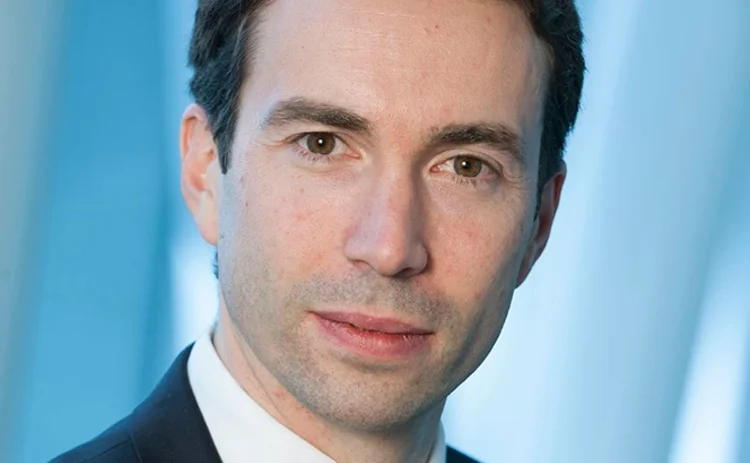
Equity derivatives house of the year: Societe Generale
Internal restructure helps streamline risk recycling

Structured Products Europe Awards 2016
Tumbling equity indexes, a wave of regulatory sanctions and rock-bottom volatility have all challenged European structured product houses this year. No dealer or product has been spared – even the traditional autocallable, the cornerstone of the European market, has taken a beating.
"January and February were very hectic months. Indexes performed poorly and the autocallable business suffered as fewer products were called. This meant fewer clients reinvesting. We estimate sales were down by double-digit percentage points across the market. Also, flow derivative sales have been depressed throughout the year because of low volatility," says Pierre Lescourret, global head of financial engineering, equities and derivatives at Societe Generale in London.
But the bank was well placed to flourish in these testing times thanks to a far-sighted investment in its equity derivatives franchise. Over the course of 2015, the firm combined the global equity flow and cross-assets solutions groups into a single business entity, as part of its 'One-Mark' reorganisation. The project generated efficiencies across the flow and exotics desks.
"On the one hand we had an exotic book and on the other a flow book. Then we merged trading activities in one department. The benefits are manifold. First, it has improved dramatically the way we recycle risk generated by our exotics books. Second, we have minimised trading costs. Where before, the exotic and flow traders operated in silos, the exotic traders would hedge either in the external market or through the flow desk – meaning they would face two bid offers. By merging the trading desks, you reduce this to one bid-offer, allowing for best execution," says Lescourret.
The sea change in risk management engendered by this reorganisation has locked in material benefits. Societe Generale offset 40% of the exposure generated by its autocallable issuance via a series of dispersion, convexity and covariance trades with fast-money clients totalling €1.3 billion ($1.4 billion) in notional. Not only do these risk-transfer trades protect the bank from losses to their structured products book in whipsaw markets, they also free up inventory for Societe Generale to print more retail business.
"Our books were sound throughout the turbulence of January and February. Unlike other banks, we didn't suffer losses in autocallable books in Europe," says Lescourret. This shows the bank has learned the painful lessons of the autocallable market. Last year, it swallowed losses on its book after getting caught in the turbulence that rocked Asian markets.
The bank has also pioneered cutting-edge indexes to invigorate its autocallable offering. Its flagship product, the Euro iStoxx EWC 50 index, first launched at the end of 2014, has been wrapped into more than 150 products and distributed by some 40 retail counterparties to date, totalling in excess of €1.3 billion assets under management.
The EWC 50 is a prime example of the new generation of synthetic dividend indexes making waves on the continent. The index is a twist on the Euro Stoxx 50. While it contains all of the same constituents as the benchmark, in the EWC 50 these are weighted equally rather than by market capitalisation. Unlike the Euro Stoxx 50, equity dividends are reinvested in the index and a ‘synthetic dividend', fixed at 50 index points, is subtracted instead. This synthetic dividend lets Societe Generale price autocallable products referencing the EWC 50 at more attractive levels for end-investors than the Euro Stoxx 50.
"We designed an index that shares many of the characteristics of the Euro Stoxx 50, yet is more pricing-friendly. The fixed dividend is higher than the implied dividend, which improves the pricing of the autocallables and delivers better coupons to the client. The equal weighting improves the chances a product will autocall on the nearest observation date, paying out to the client and allowing us to reload inventory," says Lescourret.
Societe Generale negotiated exclusive rights to this index technology with Stoxx, cornering the market for synthetic dividend products referencing Europe's most popular bourse.
Product innovation has also been spurred by regulatory constraints. Retail structured products have been hammered across the continent by watchdogs eager to crack down on strategies they deem too complex or risky for mom-and-pop investors. The Belgian market, for instance, is five years into a regulatory moratorium on ‘needlessly complex' products, which prevents distributors from selling capital-at-risk investments. Coupled with historically low interest rates, the moratorium has slashed the returns investors can gain from structured products.
Societe Generale, however, has launched a suite of inventive structured notes that provide tempting yields within the constraints of the product ban. The moratorium permits the sale of non-euro products, freeing the bank to structure equity-linked notes with exposure to higher-yielding currencies. The bank's Atlantic Quality Upside Booster USD Note offers 100% principal protection plus participation in the performance of the Solactive Atlantic Quality Index.
Only users who have a paid subscription or are part of a corporate subscription are able to print or copy content.
To access these options, along with all other subscription benefits, please contact info@risk.net or view our subscription options here: http://subscriptions.risk.net/subscribe
You are currently unable to print this content. Please contact info@risk.net to find out more.
You are currently unable to copy this content. Please contact info@risk.net to find out more.
Copyright Infopro Digital Limited. All rights reserved.
You may share this content using our article tools. Printing this content is for the sole use of the Authorised User (named subscriber), as outlined in our terms and conditions - https://www.infopro-insight.com/terms-conditions/insight-subscriptions/
If you would like to purchase additional rights please email info@risk.net
Copyright Infopro Digital Limited. All rights reserved.
You may share this content using our article tools. Copying this content is for the sole use of the Authorised User (named subscriber), as outlined in our terms and conditions - https://www.infopro-insight.com/terms-conditions/insight-subscriptions/
If you would like to purchase additional rights please email info@risk.net
More on Awards
Joining the dots: banks leverage tech advancements for the future of regulatory reporting
The continued evolution of regulatory frameworks is creating mounting challenges for capital markets firms in achieving comprehensive and cost-effectiveawa compliance reporting. Regnology discusses how firms are starting to use a synthesis of emerging…
Markets Technology Awards 2024 winners' review
Vendors spy opportunity in demystifying and democratising – opening up markets and methods to new users
Derivatives house of the year: JP Morgan
Risk Awards 2024: Response to regional banking crisis went far beyond First Republic
Risk Awards 2024: The winners
JP Morgan wins derivatives house, lifetime award for El Karoui, Barclays wins rates
Best product for capital markets: Murex
Asia Risk Awards 2023
Technology vendor of the year: Murex
Asia Risk Awards 2023
Best structured products support system: Murex
Asia Risk Awards 2023
Energy Risk Asia Awards 2023: the winners
Winning firms demonstrate resiliency and robust risk management amid testing times
Most read
- Top 10 operational risks for 2024
- Top 10 op risks: third parties stoke cyber risk
- Japanese megabanks shun internal models as FRTB bites







